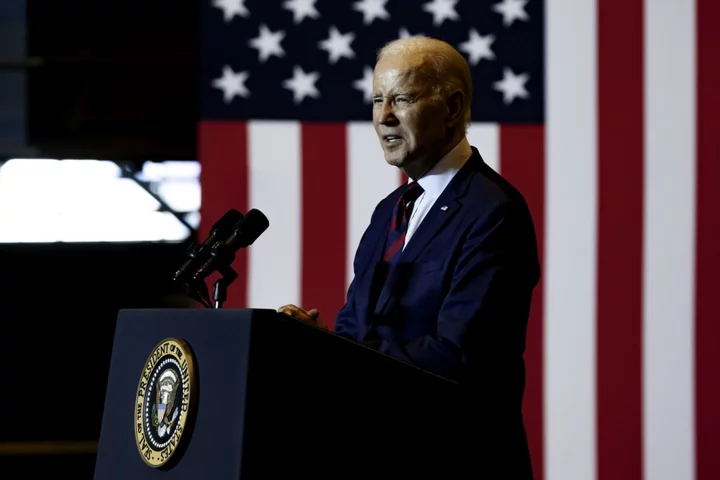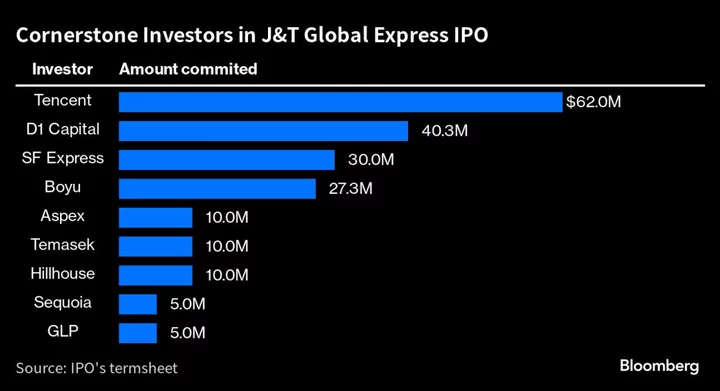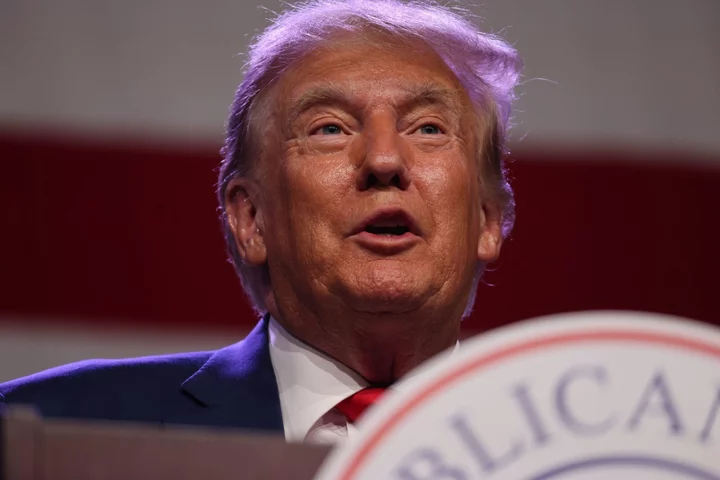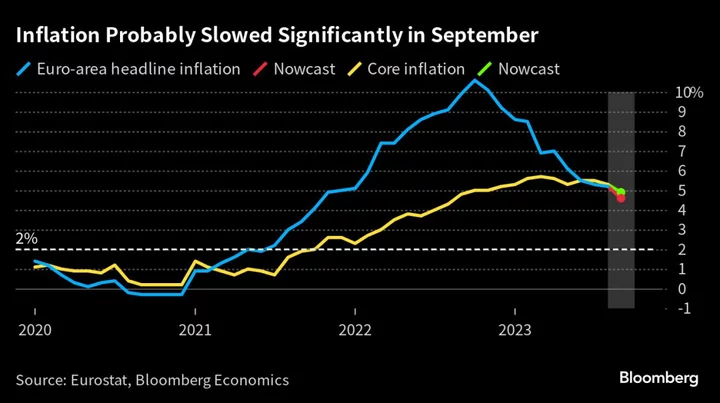President Joe Biden imposed limits on US investments in China as part of a push to restrict the country’s ability to develop next-generation military and surveillance technologies that might threaten US national security.
The order, announced Wednesday, would regulate US investments in some Chinese semiconductor, quantum computing and artificial intelligence firms.
It was signed after almost two years of deliberations that saw China hawks argue for faster, tougher action while others, including the Treasury Department, sought narrower measures that would take longer to go into effect.
While details of the rules still need to be worked out, the language of the order suggested that Treasury and those advocating a more cautious approach won out.
The order, which won’t go into effect until next year, won’t be retroactive and excludes sectors such as biotechnology. It may end up exempting passive investments as well as those in publicly traded securities, index funds and others assets.
“For the business community, this is relatively good news,” said Sarah Bauerle Danzman, a senior fellow at the Atlantic Council and associate professor of international studies at Indiana University. “It’s a relatively narrow notification process and very narrow set of prohibitions.”
Targeting Equity
Venture-capital firms and the tech industry had lobbied the Biden administration to narrow the scope of the order, after investors feared the White House would impose sweeping limits on US investment. Allied nations had also resisted, with the European Union and others saying that severe restrictions could hurt their economies.
Biden administration officials said the order targets those who look to acquire equity interests in restricted Chinese companies via mergers, private equity and private capital, as well as by joint ventures and financing arrangements. It’s expected to be limited to Chinese startups and larger firms that get over 50% of their revenue from the restricted sectors.
Bloomberg Economics: Yards, Fences and Biden’s New China Investment Rules
The US already limits exports of some sensitive technologies to China, and the order “would prevent U.S. investments from helping accelerate the indigenization of these technologies” in what it called countries of concern, the White House said in a release. The order defined that as China, Hong Kong and Macau.
‘Very Disappointed’
China is “very disappointed” in the US decision to go ahead with the restrictions and will safeguard its own interests, Embassy spokesman Liu Pengyu said in a statement.
“China opposes the U.S. overuse of national security to politicize and weaponize trade, scientific and technological issues and deliberately making obstacles to normal economic and trade exchanges and technological cooperation,” Liu said.
Read more: China to Respond If the US Puts Limits on Investment, Envoy Says
The restrictions are the latest in a series of US actions that have complicated the Biden administration’s push to improve relations with China, after a succession of flare-ups over Taiwan, rights abuses in Xinjiang, intellectual property threats, and an alleged Chinese spy balloon that was shot down in February.
Not least among the irritants have been export controls on semiconductor technology announced last year and efforts by Congress to push the White House toward taking a harder line, including on defending Taiwan.
Low-Key Rollout
The White House announced the order after US markets closed Wednesday, but reaction was expected to be muted. Major US investors had anticipated it for some time, and venture-capital firms had already been scaling back their bets on Chinese startups for well over a year.
Read more: China’s Foreign Investment Gauge Declines to 25-Year Low
A relatively low-key rollout on Wednesday showcased how cautious the White House is about ratcheting up tensions with China. Instead of announcing it in the presence of media and giving public remarks on the matter — as is often the case for executive orders — Biden opted to sign it while out of town and without cameras. The president was traveling in New Mexico to promote his “Bidenomics” agenda and didn’t address the order.
Biden in May predicted a “thaw” was coming in US-China relations, which over the past year have deteriorated to their worst in decades. The president also said repeatedly that he plans to speak to and meet with his Chinese counterpart, President Xi Jinping, in the near future. The two leaders could meet in November when Biden hosts the APEC summit in San Francisco, but neither side has confirmed the plans.
Allies, Businesses
A key question now is whether other countries will follow Washington’s move, including fellow Group of Seven countries. The administration has briefed allies and partners about the order over the past year, arguing that it must be done in coordination with them to avoid the backfilling of curtailed US investments. So far, none have followed through.
A UK government spokesperson said the order helps clarify the US approach to China and Prime Minister Rishi Sunak’s government will consider it closely.
A fact sheet that accompanied the announcement underscored how much of the order remains a work in progress. It said, for example, the Treasury was “considering” the prohibition of investments in technologies that remained loosely defined, with more specific definitions subject to input the Treasury will gather during a 45-day comment period.
Daniel Tannebaum, partner at Oliver Wyman, said that the release of the EO is just the start of the process and gives businesses plenty of time to weigh in on how the restrictions will ultimately work.
“We’re not done yet,” Tannebaum said. “We need to see what this ultimately looks like but it’s encouraging that they’re giving industry a chance to weigh in on a whole host of topics.”
Courting Congress
White House officials briefed Republican and Democratic staff on Capitol Hill about the order earlier on Wednesday, and the initial response was tepid, according to one GOP staffer who joined the discussions and asked not to be identified because the briefing was private.
Representative Raja Krishnamoorthi, an Illinois Democrat, said the order was essential but “cannot be the final step.” House Foreign Affairs Chairman Michael McCaul, a Texas Republican, said the failure to include existing investments and the decision to exclude sectors such as biotechnology were concerning.
“The administration scaling back — at a time where aggressive action is needed more than ever — continues the trend of appeasing industry at the cost of national security,” McCaul said in a statement.
--With assistance from Eric Martin, Daniel Flatley, Christopher Condon, Dawn Lim, Ellen Milligan, Lizette Chapman and Billy House.
(Updates with details and comment throughout.)









